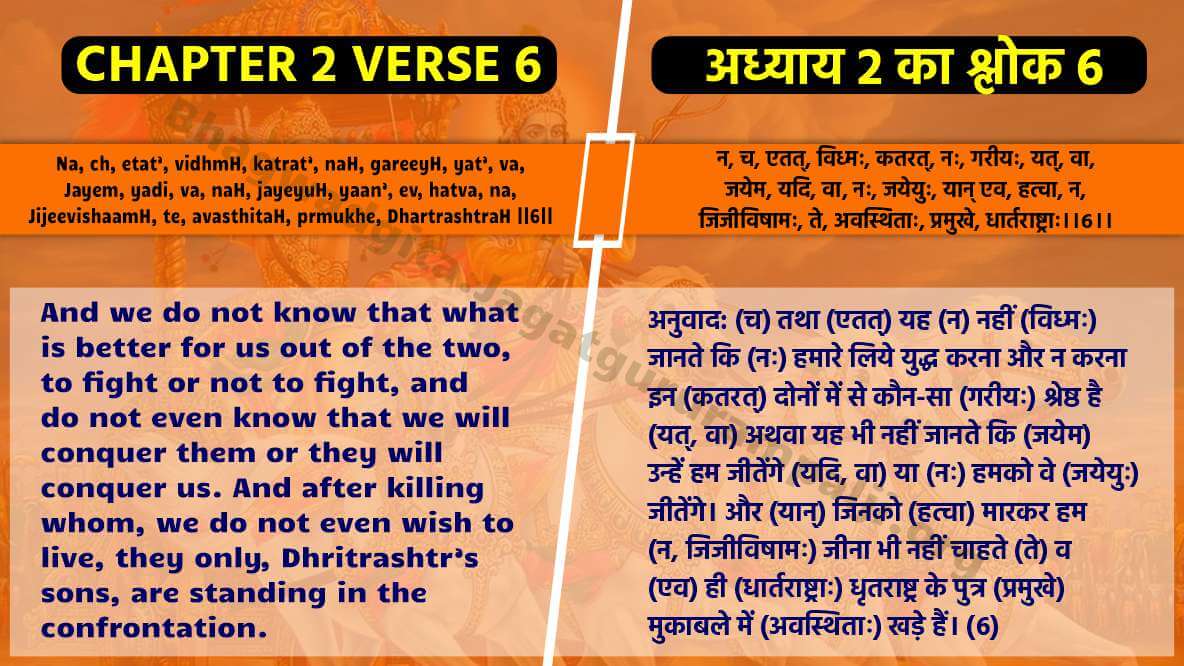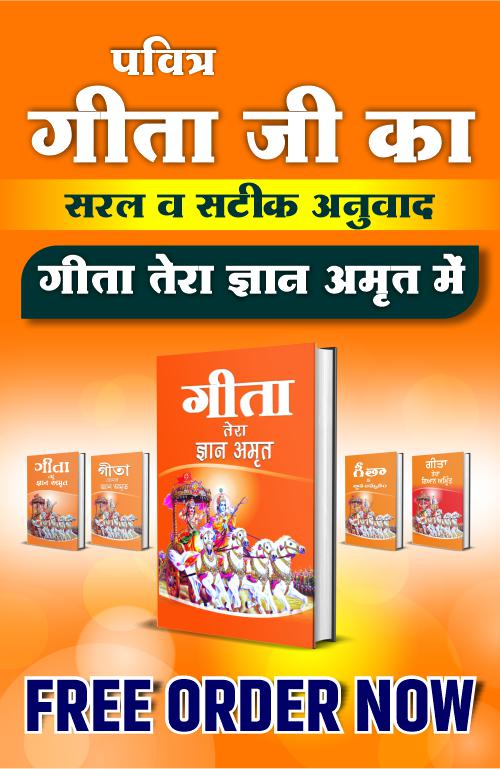
Na, ch, etat’, vidhmH, katrat’, naH, gareeyH, yat’, va,
Jayem, yadi, va, naH, jayeyuH, yaan’, ev, hatva, na,
JijeevishaamH, te, avasthitaH, prmukhe, DhartrashtraH ||6||
Translation: (Ch) and (etat’) this (na) not (vidhmH) know that (naH) for us, to fight and not to fight (katrat’) which one of these two (gareeyH) is better (yat’, va) and even do not know this that (jayem) we will conquer them (yadi, va) or (naH) us, they (jayeyuH) will conquer, and (yaan’) whom (hatva) after killing, we (na, jijeevishaamH) do not even wish to live (te) they (ev) only (DhartrashtraH) Dhritrashtr’s sons (prmukhe) in the confrontation (avasthitaH) are standing. (6)
Translation
And we do not know that what is better for us out of the two, to fight or not to fight, and do not even know that we will conquer them or they will conquer us. And after killing whom, we do not even wish to live, they only, Dhritrashtr’s sons, are standing in the confrontation.
न, च, एतत्, विध्मः, कतरत्, नः, गरीयः, यत्, वा,
जयेम, यदि, वा, नः, जयेयुः, यान् एव, हत्वा, न,
जिजीविषामः, ते, अवस्थिताः, प्रमुखे, धार्तराष्ट्राः।।6।।
अनुवाद: (च) तथा (एतत्) यह (न) नहीं (विध्मः) जानते कि (नः) हमारे लिये युद्ध करना और न करना इन (कतरत्) दोनोंमेंसे कौन-सा (गरीयः) श्रेष्ठ है (यत्, वा) अथवा यह भी नहीं जानते कि (जयेम) उन्हें हम जीतेंगे (यदि, वा) या (नः) हमको वे (जयेयुः) जीतेंगे। और (यान्) जिनको (हत्वा) मारकर हम (न, जिजीविषामः) जीना भी नहीं चाहते (ते) वे (एव) ही (धार्तराष्ट्राः) धृतराष्ट्रके पुत्रा (प्रमुखे) मुकाबलेमें (अवस्थिताः) खड़े हैं। (6)
